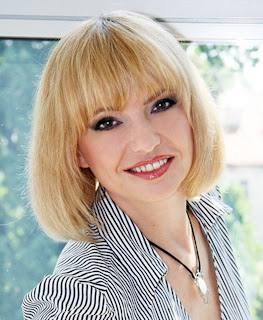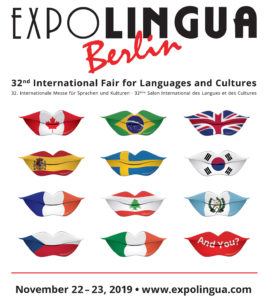Creative work – not a dull routine: Aus dem Alltag von EU-Übersetzern (Teil II)
1750 fest angestellte Übersetzer und 600 weitere Mitarbeiter: Die EU betreibt einigen Aufwand, um der Sprachenvielfalt in der Union gerecht zu werden. Die Generaldirektion Übersetzen der Europäischen Kommission beschäftigt nicht nur Sprachtalente in Luxemburg und Brüssel. In zahlreichen europäischen Ländern stehen in sogenannten „Field Offices“ Profi-Übersetzer für EU-Angelegenheiten zur Verfügung. Am Montag berichtete bereits Mariusz Czarnecki, Übersetzer in der Außenstelle Berlin, von seiner Arbeit.
Heute erfahre n wir von Veronika Borakova vom Field Office im slowakischen Bratislava, dass Sie als EU-Übersetzerin einiges mehr zu tun hat, als am Schreibtisch gebeugt über Texten zu brüten.
n wir von Veronika Borakova vom Field Office im slowakischen Bratislava, dass Sie als EU-Übersetzerin einiges mehr zu tun hat, als am Schreibtisch gebeugt über Texten zu brüten.
“Welcome to my office. I do feel comfy here, with all my little souvenirs and postcards on the shelves, and sticky notes and fresh printouts in a well organised mess at the side desk. A loud noise from the busy street crashes in through the windows. My violet plant is already half-dead and reminds me that I should be thinking about my own shabby drinking regime too…
It is a rainy morning. My computer seems to be sleepy too. Euramis has not waken up yet either. And what is worse, this translation is going way too slow. Mallard, gadwal, granary… I would have never thought that the Danube basin had so many species of duck! I hope I will manage to find all these funny names in Slovak! ‘It’s a tough job, but somebody has to do it!’ says Homer Simpson on the wall, eating a greasy donut (the drawing is gift from my little boy). No, the Field Officer does not have the Simpson’s layabout attitude. So glad I have finally managed to name all the poor birds!
This work, however, is nothing like a dull routine. Just skip through my latest agenda: I met talented language students in East Slovakia the other day, and the plan for today, after translating the press release, is to check the state of play with the new conference on Slavic languages and then draft a media briefing on the Juvenes Translatores contest organised by DG Translation in the secondary schools. And on the top of all this, the final details of the European Day of Languages celebrations should be agreed in the afternoon at a meeting with foreign language and cultural institutes. No, the day is not over yet. The Representation’s Press officer calls for an urgent translation of an article for a Slovak newspaper!”



